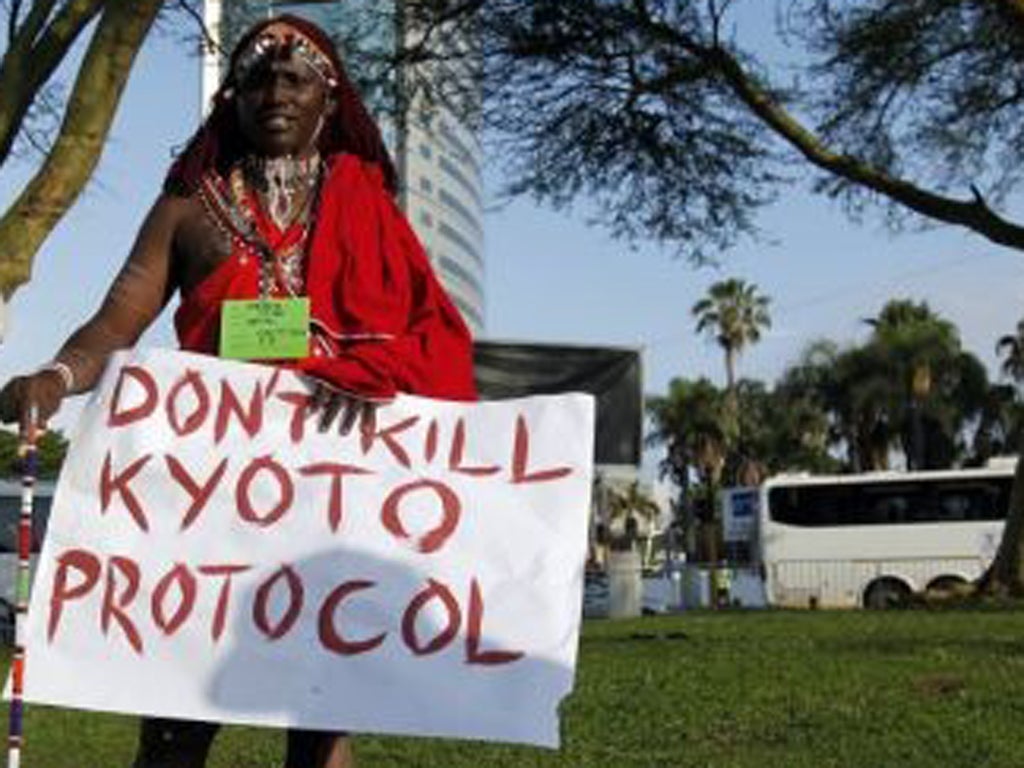Reluctance of 'big three' polluters dashes climate hopes

Your support helps us to tell the story
From reproductive rights to climate change to Big Tech, The Independent is on the ground when the story is developing. Whether it's investigating the financials of Elon Musk's pro-Trump PAC or producing our latest documentary, 'The A Word', which shines a light on the American women fighting for reproductive rights, we know how important it is to parse out the facts from the messaging.
At such a critical moment in US history, we need reporters on the ground. Your donation allows us to keep sending journalists to speak to both sides of the story.
The Independent is trusted by Americans across the entire political spectrum. And unlike many other quality news outlets, we choose not to lock Americans out of our reporting and analysis with paywalls. We believe quality journalism should be available to everyone, paid for by those who can afford it.
Your support makes all the difference.The chance of a binding new climate deal involving the world's biggest greenhouse gas emitters – China, the US and India – looks increasingly unlikely as the UN climate conference in Durban draws to a close today.
In an outcome that would dash the hopes of thousands of people and many countries that feel threatened by global warming, an international treaty that would make the planet's biggest polluters – along with everybody else – cut back by a definite timetable on their soaring carbon emissions is looking like an impossible dream.
More than 120 nations of the 194 present at Durban, including the entire 43-strong bloc of the least developed countries, were yesterday supporting the plan, put forward by Britain and the EU, to agree a "road map" to a global, legally binding climate pact involving all nations to be signed by 2015 and come into force not later than 2020.
Despite emollient noises being made in public by the "Big Three" emitters, the Chinese, American and Indian line in negotiations was much harder and their participation in a credible deal was looking doubtful.
Participation of the leading emitters is crucial because those three nations alone account between them for 46 per cent of global emissions – China for 24 per cent, the US for 16 per cent and India for 6 per cent – yet none of them show any sign of making emissions cuts, and Chinese and Indian emissions in particular are growing at nearly 10 per cent annually.
The US has taken on a target, but given no sign whatsoever of how it will achieve it, while the other two have said they will reduce the energy intensity of their economy, but not the emissions themselves. All are reluctant to cut their carbon for fear it would damage their economies.
If the negotiations do fail to get a credible deal, 20 years of effort to reduce greenhouse gases will run into the sand. It will mean a "lost decade" for climate change in which no real steps are taken until after 2020 to curb emissions, now totalling more than 32 billion tonnes of CO2 globally and soaring at an unprecedented 6 per cent each year.
The present climate treaty, the Kyoto Protocol, which runs out at the end of next year, only covers about 15 per cent of global CO2, because when it was signed in 1997 it only covered what were then the rich industrialised countries. Since then, the globe has changed dramatically in a way nobody predicted, especially with the rapid expansion of the Chinese economy, which has led to the country's soaring greenhouses gases.
China, India and other developing countries have hitherto been insistent on a renewal of Kyoto without wanting a further treaty.
The EU has proposed that it will renew Kyoto, but the price is a new overarching, legally binding, time-limited agreement. Chris Huhne, Britain's Energy and Climate Change Secretary, who is leading the UK's talks at Durban, has been one of the most enthusiastic proponents of a new global deal and last night he was still hopeful. He said: "We are making progress, but it's too early to say we're going to be able to achieve a really good deal."
Join our commenting forum
Join thought-provoking conversations, follow other Independent readers and see their replies
Comments